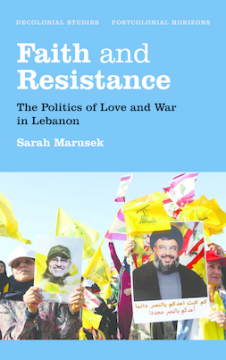
Additional Information
Book Details
Abstract
What kind of decolonial possibilities exist in today's world? Exploring the rise of Islamic activism in Lebanon and the Middle East, and drawing transnational parallels with other revolutionary religious struggles in Latin America and South Africa, Sarah Marusek offers a timely analysis of the social and political evolution of Islamic movements.
The growing popularity of Islamic movements means that many groups, which emerged in opposition to Western imperialism, are now also gaining increasing economic and political powers.
Based on more than two and a half years of ethnographic fieldwork in Lebanon, Marusek paints a picture of how resistance is lived and reproduced in daily lives, tracing the evolution of the ideas and practices of the charities affiliated with Hizbullah and the wider Islamic resistance movement.
Adopting a dialectical approach, Faith and Resistance discusses the possibility for resistance groups to reconcile acquiring power with their decolonial aspirations. In doing so, the book acts as a guide for liberation struggles and those engaged in resistance the world over.
'This is a brilliant, erudite and welcome addition to the growing body of work on Islamic liberation theology and decoloniality.
Farid Esack, Professor in the Study of Islam, University of Johannesburg
Table of Contents
| Section Title | Page | Action | Price |
|---|---|---|---|
| Cover | Cover | ||
| Contents | v | ||
| List of Illustrations | vii | ||
| Preface | viii | ||
| Acknowledgements | xviii | ||
| 1. Introduction | 1 | ||
| 2. The Rise of Religious Activism in Lebanon and Beyond | 26 | ||
| 3. Deconstructing Terrorism and Resistance | 63 | ||
| 4. Lebanon's Resistance Charities | 89 | ||
| 5. The Imam al-Sadr Foundation | 123 | ||
| 6. The Problem of Resistance and Power | 151 | ||
| Conclusion | 180 | ||
| Notes | 189 | ||
| References | 205 | ||
| Index | 223 |
